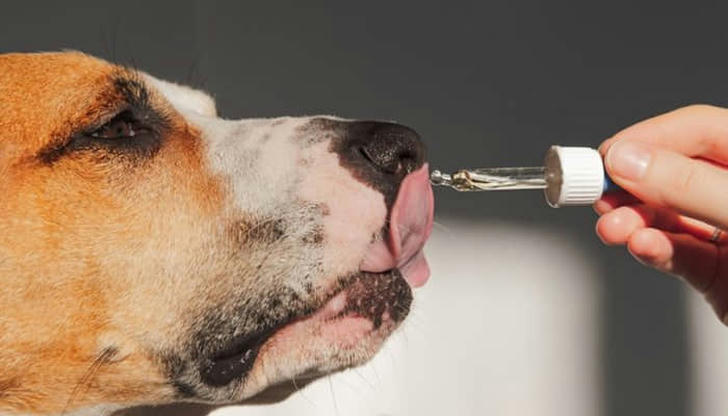Understanding Nutritional Supplements for Pets: A Comprehensive Guide

As pet owners, ensuring the health and well-being of our furry companions is a top priority. One increasingly popular aspect of pet care is the use of nutritional supplements. These products can play a significant role in enhancing your pet’s overall health, particularly as they age or if they have specific dietary needs. This article explores the importance of nutritional supplements for pets, addressing common questions and providing insights into their benefits.
The Role of Nutritional Supplements

Nutritional supplements are designed to complement a pet's diet by providing essential nutrients that may be lacking. These can include vitamins, minerals, fatty acids, probiotics, and more. Each type serves a unique purpose:
Vitamins and Minerals: Essential for various bodily functions, these nutrients can help prevent deficiencies that might lead to health issues.
Omega Fatty Acids: Known for promoting healthy skin and coat, these supplements can also support heart health and reduce inflammation.
Probiotics: Beneficial for digestive health, probiotics help maintain balanced gut flora, which is crucial for overall wellness.
Common Questions About Nutritional Supplements for Pets

1.What are pet supplements?
Pet supplements are products designed to provide additional nutritional support to your dog or cat. They typically come in various forms, such as tablets, powders, oils, or chews, and can be added to your pet’s food or given as a treat.
2.Are pet supplements necessary?
While a complete and balanced diet is essential for your pet's health, food alone might not always provide all the necessary nutrients. Supplements can help fill nutritional gaps and promote optimal health, especially for pets with specific health conditions like joint pain or sensitive digestion. Always consult your veterinarian to determine whether your pet would benefit from supplements.
3.Can pets take human supplements?
It is generally not recommended to give pets human dietary supplements. Different species have varying nutritional needs, and human supplements may contain ingredients that could harm your pet. Dosages also differ significantly between species, making it essential to use products specifically designed for animals.
4.Are pet supplements regulated?

In many regions, pet supplements do not have their own specific regulations but must adhere to general pet food product regulations. This includes rules around labeling and marketing to ensure safety. It is crucial to choose reputable brands that comply with these standards.
5.Can I give my pet supplements at the same time as medication?
Always consult your veterinarian before introducing any supplements alongside medications. Some supplements can interfere with how your pet absorbs their medicine if taken simultaneously. Your vet can provide guidance on how best to manage both.
6.Can my pet overdose on supplements?

While it is unlikely for pets to experience an overdose in the traditional sense, taking too much of a supplement can lead to nutritional imbalances. For example, excessive amounts of certain vitamins can be toxic. Always follow product instructions and consult your veterinarian if you have concerns.
7.What factors should be considered when selecting a supplement?
When choosing a supplement for your pet, first speak with your veterinarian to identify any nutritional deficiencies or specific health conditions that may require additional support. Consider the form of the supplement (e.g., powder, chewable) that will be most acceptable to your pet and ensure you purchase from reputable sources.
8.How long does it take to see results from pet supplements?
The timeframe for observing improvements can vary based on the type of supplement and the health issue being addressed. Some changes may be noticeable within weeks, while others could take months.
9.Are there specific supplements recommended for senior pets?

Senior pets often benefit from joint support supplements like glucosamine and chondroitin, as well as antioxidants that support cognitive function. Consulting with a veterinarian is essential for tailoring supplementation to meet the needs of older pets.
10.What should I do if my pet has an adverse reaction to a supplement?
If you notice any unusual behavior or symptoms after introducing a new supplement, discontinue use immediately and consult your veterinarian for further evaluation.
Conclusion
Nutritional supplements can play a vital role in maintaining the health of our pets, particularly as they age or face specific health challenges. By understanding the benefits and potential risks associated with these products, pet owners can make informed decisions that contribute positively to their pets' well-being.
Regular veterinary check-ups are essential in guiding the appropriate use of nutritional supplements alongside a balanced diet tailored to each pet’s unique needs. Prioritizing proactive care will not only enhance the quality of life for our furry friends but also strengthen the bond we share with them as loving companions. With careful consideration and guidance from veterinary professionals, you can ensure that your pet receives optimal nutrition throughout their life journey. This version maintains clarity and logical flow while omitting the introductory sentence from the "Common Questions" section as requested.
